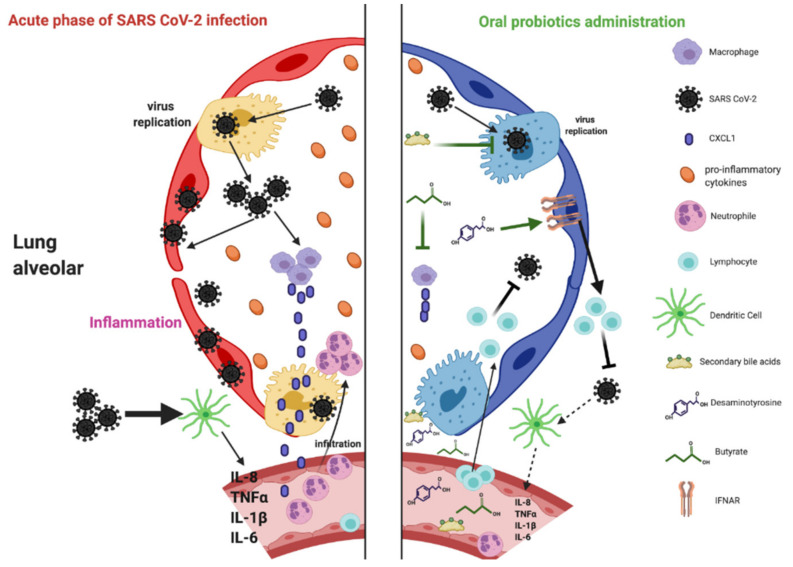Figure 2.
Model of the effect of next-generation probiotic (NGP)-derived metabolites on infected lungs. In the acute phase of SARS CoV-2 infection, inflammatory cytokines are secreted (storm cytokines), and airway debris and pulmonary edema, form leading to respiratory distress. After oral administration of NGPs, their metabolites are transported by the blood to the lungs where they can regulate the immune system or viral replication. Butyrate increases the proliferation of the macrophages that express a lower level of chemokine (C-X-C motif) ligand 1 (CXCL1), thus reducing neutrophil influx in the lungs. Secondary bile acid metabolites directly affect CD4+ T cells or decrease progeny viruses. Desaminotyrosine (DAT) metabolites boost type I interferons (IFN) production by amplifying interferon-α/β receptor (IFNAR) and activator of transcription 1 (STAT1) and activate lymphocytes. Figure created with BioRender.com (accessed on 19 May 2020).

